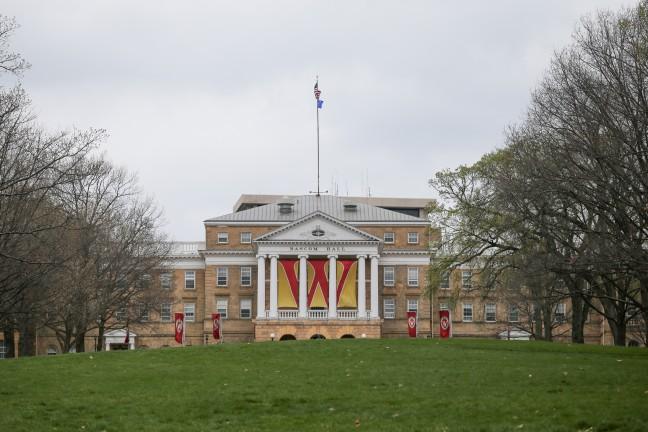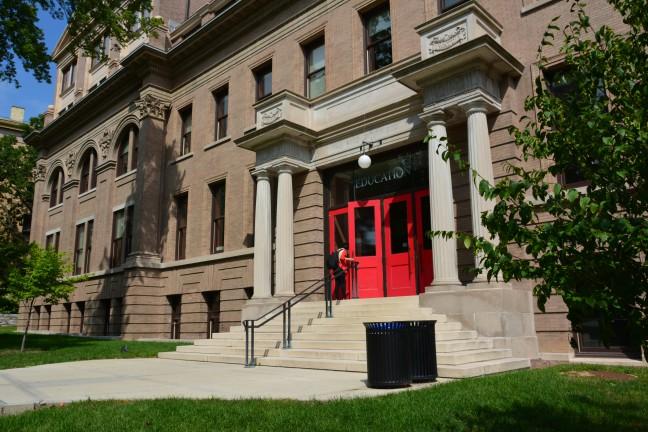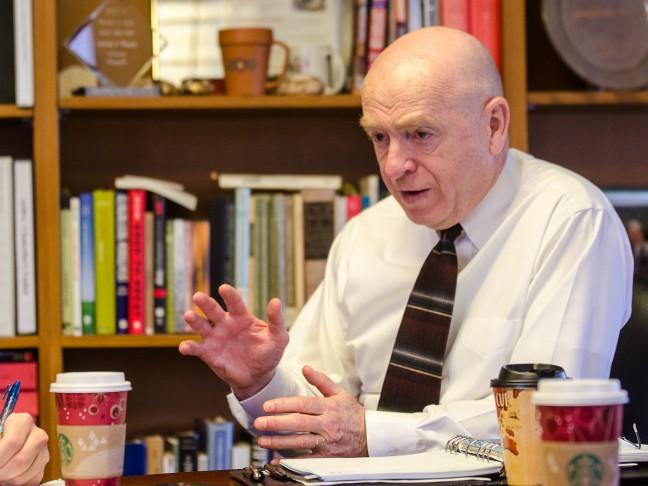University of Wisconsin System students will likely see a smaller tuition increase than in recent years, a UW System official told the Board of Regents Thursday.
Gov. Scott Walker’s proposed budget would be the first since the 1980s that does not include any cuts or budget lapses for the UW System, Associate Vice President for Budget and Planning Freda Harris told the regents.
Harris said the state’s investments would help close a gap where students currently pay 70 percent of their education costs, while the state pays 30 percent. In the 1970s, Harris said, those numbers were flipped.
Harris explained at the regents’ meeting where Walker’s proposed $181 million investments for the UW System would go.
Walker’s budget includes $20 million in incentive grants aimed at developing the workforce and the economy, $2 million for the UW System’s flexible option degree program and $89.4 million in block grant funding, which gives more flexibility over how to spend money.
The UW System would also get $20.8 million in standard budget adjustments and $42.4 million in debt service for construction and renovation. The Madison campus would get $3 million for public health programs and $3.75 million for its Carbone Cancer Center.
Walker’s budget also removes the previous 5.5 percent tuition cap. Some student groups like United Council of UW Students have been pushing for a tuition cap to be reinstated, uncertain about whether the regents could increase tuition at higher amounts in their June meetings.
The $89.4 million block grant is meant to give the UW System flexibility over some of its spending, allowing officials to prioritize where money could go.
UW System President Kevin Reilly said improving faculty salaries, which are 18 percent below the national average, “remains a top priority.”
“The governor’s budget sets the stage for some positive movement on compensation,” Reilly said.
UW System Associate Vice President for Academic and Student Affairs Mark Nook said earlier in the day the below-average faculty salaries are a “threat to quality,” noting the faculty who have been leaving for higher-paying positions.
Nook pointed to the statewide per capita income lagging 5 percent behind the nation’s average. That number used to be the same with UW System faculty, Nook said, but a “degradation in salaries” has led to faculty pay now being 18 percent below the national average.
Much of the budget conversations are assuming Walker’s proposals for the UW System go untouched in the legislative process. The state Legislature’s Joint Committee on Finance, the Assembly and the Senate will make changes to Walker’s budget.
Reilly encouraged the regents to “work very, very hard” to keep Walker’s proposals unchanged.
No new overpayment problems
UW System Senior Vice President Michael Morgan told the regents UW System’s internal audit has not resulted in any more overpayment problems since February’s Board of Regents meeting.
Last month, the UW System’s top auditor told the regents her office had found an additional $1.1 million in overpayments. That is on top of more than $33 million in retirement and health benefits overpayments that arose from the UW System not reconciling some payment data with a state benefits agency.
The Legislative Audit Bureau had released a report in January outlining the overpayments and other issues. That report sparked a broader legislative audit and a UW System risk assessment in addition to its internal audit.
The UW System recovered about $20 million of the overpayments when it identified them last year. All of the $17.5 million in retirement overpayments were recovered within a month, but the UW System has yet to recover about $12 million of the $15.4 million in health benefits it overpaid.
“It’s going to be very, very difficult to recover many of those dollars, [but] we will be very, very aggressive in trying to recover as many of them as we possibly can,” Morgan said.
At the time of the overpayments, the UW System was implementing a new HR system that replaced a nearly 40-year-old program that officials feared was ready to break and not send paychecks any day. Their top priority at the time of implementing the new HR system, officials have said, was ensuring employees got their paychecks.
UW Vice Chancellor for Finance and Administration Darrell Bazzell said the reconciliation process for 2012 is underway. The Madison campus manages the UW System’s human resources system’s day-to-day operations.
The unit doing reconciliations at the time had 1.5 full-time employees but now has 14, who Bazzell said have worked on improving the process.
“We believe controls were put in place to prevent future occurrences,” Bazzell said.
The LAB report also identified security problems within the UW System’s human resource system, including a flaw that could lead to employees being made up to send fraudulent payments to.
Morgan said his team has been investigating those concerns and has found no “ghost employees.”
UW System officials are working on the contract for the outside risk assessors, Morgan added.














